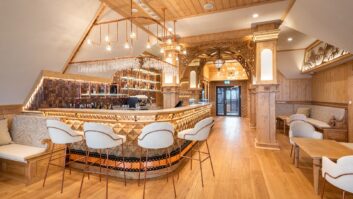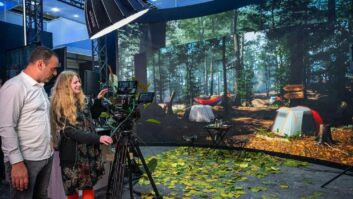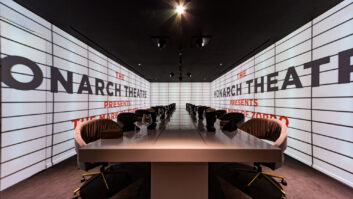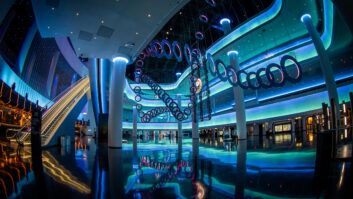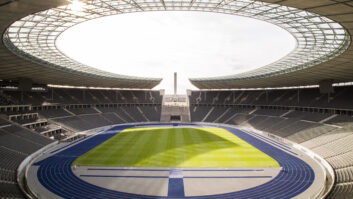Economic and political uncertainty was hindering the Greek installation sector the last time IE checked in, back in August 2008. So how is the market faring nearly one year on, asks David Davies?
The last IE survey of the Greek installation market (as part of a wider focus that also included Turkey) in summer 2008 portrayed a business that was continuing to develop despite long-standing and often painful economic circumstances.
Nearly 12 months later, the national situation is, in many ways, more problematic. Kostas Karamanlis’s New Democratic Party government continues to battle high levels of unemployment and debt, as indeed it has done since it arrived in the corridors of power in 2004. However, the advent of the international economic crisis has piled on more pressure, and in recent months the stresses have started to show.
Inclined towards privatisation and labour reform, the NDP’s agenda has long been controversial, but in October last year reactions escalated in the form of a major strike involving hundreds of thousands of public sector workers and professionals. More strikes ensued in December – the same month that Karamanlis rejected opposition calls to step down following a period of urban riots by young people expressing their alarm at the police shooting of a teenager.
Calm has since been restored, but the NDP administration still has plenty to worry about. After many years of creditable growth, the economy has slowed right down. While some still predict very modest expansion this year, the International Monetary Fund’s mission project recently projected growth of between -1 and -2% in 2009, with a recovery set to begin in late 2010. Moreover, as in other countries that have the euro currency, consumer and business confidence, industrial production and retail sales have all “dropped sharply”.
There is also concern about a dip in visitor figures – no small consideration given that tourism traditionally accounts for about 18% of Greece’s GDP. With levels of tourism having obvious implications for many areas of install, the importance of this factor should not be underestimated.
To expand the scope of this report, we have also included the nearby island of Cyprus in our remit. Home to just over 800,000 people, Cyprus is similarly dependent on tourism. (It should be noted however that, unless otherwise stated, our interviewees’ comments relate solely to the Greek market.)
Holding steady
Many of the companies interviewed for this article acknowledged the impact of the economic downturn on Greece, while emphasising that the current situation is basically no worse than in many other European countries. Plenty of rewarding business is still being done, although there is no doubt that the number of new installation projects being given the go-ahead has fallen in recent months.
“All European countries are being influenced by the economic downturn in one way or another, but some countries – such as Spain and Italy – are less severely affected owing to changes in legislation,” observes Paolo Pedrazzoli, marketing operations manager for 3M’s Touch Systems Division. “In all cases we are seeing less activity in terms of new installations. Market analysts anticipate the beginnings of a resurgence by the end of June, so we hope to see a steady climb in business growth through Q3 and into 2010.”
Pierre Gillet, vice president, Europe at US-based digital media technology company Roku, agrees that the situation in the Greek market “generally reflects the trends in the rest of Europe. Where there is a clear ROI case for a project there is a good chance of getting the budget signed off. Small to medium-sized installations in medium-sized businesses with a short decision-making chain are generally progressing more quickly than larger projects, which are still tending to move to the right. We find that cost-effective solutions that deliver high performance and are easy to implement and install are very well received.”
While some may draw parallels with the current situation in other European nations, Martin Solander, area sales manager for Martin Professional, argues that Greece has actually had “a different approach to the international crises than most other countries as their slowdown started after the peak years leading up to the Olympic Games in Athens in 2004. Of course, the present crises have only reached their full capacity (until now at least) in Q4 2008/Q1 2009, but business in general has already lifted the foot from the accelerator – the opposite of what happened in other markets.”
Like several others who spoke to IE for this feature, Solander highlights the dampening effect that the current scarcity of credit is having on the ability of install customers to press ahead with new projects. “The economic crisis is hitting the Greek liquidity system rather hard,” he confirms. “Greece has always had a history of long payment conditions, and with the present crisis the terms are getting longer and, unfortunately, more insecure.”
The tourism factor
As indicated above, tourism has traditionally been a vital component of the Greek economy and, in turn, has fed into countless new installations. However, with visitor totals dipping significantly in 2009 – according to recent findings issued by the Institute for Tourist Research and Forecasts, tourism was down by 7.2% in Q1 – new developments are under growing pressure.
Not surprisingly, the hotel sector is generally thought to be feeling the pinch, along with bars, restaurants and other venues for social gatherings. An increasing number of projects are subject to delays or cancellation, and it seems that it will take a revival in tourist numbers – and greater access to credit – to get things moving once again.
Solander offers this concise summary of the present predicament: “Greece is – just like Turkey and Cyprus – very dependent on international tourists, and so far the season does not look very good. Unfortunately, this postpones a number of installations as owners are not sure how the season will end up. The best we can wish for is a bad summer in northern Europe so that all of us head for Greece and Turkey!”
Rewarding applications
But while tourism-related areas of the install market are not exactly going through a golden era, it is equally clear that some corners of the business are still performing strongly.
Collectively, IE’s interviewees alluded to a variety of areas that are generating rewarding new projects, among them the medical, industrial and retail sectors. Common to all, it seems, is an increasing focus on quality and high-specification equipment.
Paschalis Nikos, wholesale manager at Athens-based audiovisual distributor and support service provider Nedis, highlights the growing demand for high-end systems in multipurpose halls and houses of worship. “It’s only in recent times that we have had a major presence in the installation market,” notes Nikos, who says that the company’s ability to access a wider range of Dynacord’s installation products has helped to prise open this new market.
“Therefore, it’s difficult for me to compare the situation now with three years ago. However, I can say that we have been involved in numerous installations this year, despite the crisis. We have plenty of new projects and the installation business is becoming increasingly important to us.”
3M’s Pedrazzoli highlights the common desire shared by Greek install customers and their European neighbours for “increased efficiency and reliability in their touchscreen technology. In the gaming market, for example, customers are seeking enhanced functionalities, such as multi-touch and multi-sensory capabilities, that will enable them to create next-generation gaming applications for a new dimension of player interactivity.”
Elsewhere, Gillet confirms that Greek customers’ expectations “in terms of presentation tend to be as high as in other European countries such as Germany, the UK or France, and our cost-effective HD solid-state media players are well-received there.”
Indeed, this sense of continued development of suppliers’ and distributors’ presence in the country is a recurring theme of our interviewees’ comments. For example, QSC Audio clearly sees considerable potential in install for its latest offerings.
“We consider the Greek market [to be] very important for us, and with our new product introductions like K Series [active loudspeakers] and Q-Sys [DSP platform, launched at InfoComm 09 last month] we will certainly expand our presence there in the installed market,” says Hartmut Reichert, QSC’s sales manager professional audio for Europe, Middle East and Africa.
There also continues to be plenty of movement off Greece’s eastern coast on the island of Cyprus, where notable recent developments include the addition by ALA Equipment Co of visual solutions manufacturer Christie to its already extensive distribution portfolio.
In a press statement announcing the new arrangement, Christie EMEA sales director Simon Smith spoke of the intention to work with ALA in order to offer “one of the most compelling packages for professional AV users”.
“We are pleased to join the ALA Equipment Co in offering Christie products and solutions to the Cypriot and Mediterranean market,” he commented. “ALA is a reputable AV distributor and well known for offering service excellence to this market.”
Planning for a revival
Inherent in these ongoing developments is an apparent determination to progress through difficult times and ensure the long-term health of the business.
This sentiment is encapsulated neatly in an observation from Solander. “Despite the turmoil [of the] market situation we have managed to keep our feet well planted in the Greek entertainment market, and will continue to support and develop the country as the conditions slowly improve,” he says. “We are particularly strong with the service and after-sales service backup and I strongly believe that this is a key to our success in Greece.”
There is surely wisdom here for all those engaged in the Greek installation business. Maintain a strong, up-to-date offering that satisfies your customers’ changing needs, and the chances are you will benefit greatly when the inevitable recovery takes place. The market is clearly comparable with many other European nations, and the desire for high-quality AV solutions remains undimmed.
